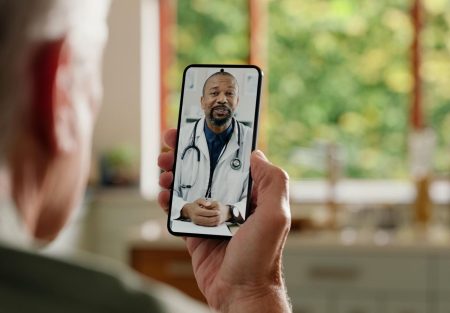One of the more intriguing capabilities of artificial intelligence in medicine is the possibility that AIs can predict patient outcomes. I’d like to discuss three such recent developments.
My first example is the suggestion by health policy experts Michael Millenson and Jennifer Goldsack that AI systems such as ChatGPT and Google’s Bard may soon be able to collate data from disparate sources and let patients know which doctors and hospitals might yield the highest chances of treatment success for their specific problems: “You can identify the Chicago surgeon who does the most knee replacements and his infection rate, find the survival figures for breast cancer patients at a renowned Los Angeles medical center, or get recommendations for cardiac surgeons in New York City.”
Of course, such recommendations would only be good as the reliability of the underlying data on patient survival rates or physicians’ complication rates. Also, complication rates by themselves do not necessarily reflect the competence of the physician. A physician who sees sicker patients or a surgeon who tackles more challenging cases may have a higher complication rate than others who do not. As always, the quality and context of such data needs to be factored into any recommendations given to patients. But overall, I think this would be a good development and I hope physicians and hospitals will be willing to release success rates (and complication rates) in as transparent a fashion as possible.
A second example is the surprising discovery that AI algorithms can detect people with type 2 diabetes through analysis of their voice—sometimes even before the patients or their doctors realize it. For men, there were subtle changes in voice intensity and amplitude; for women, there were subtle differences in pitch variation. The accuracy of the computer predictions were approximately 86% for men and 89% for women. (Please refer to the full paper for more detailed discussion of the specificity, sensitivity, and other statistical results.)
The exact mechanism of this detection method is still not fully understood. However, the researchers suspect that early diabetes can affect the mechanical properties of patients vocal cords and patients’ ability to control their vocal muscles—changes which can be detected in voice recordings. Although this research is still preliminary, if further studies confirm this result, physicians will have a new inexpensive and non-invasive way of screening for a disease that affects millions of Americans.
My third example of using AI to predict health outcomes comes from work at Vanderbilt University and University of Missouri–Kansas City. Researchers at these institutions have shown that data from CT scans of the chest used to screen for early lung cancers can not only be used to predict mortality due to lung cancer, but also from cardiovascular disease or mortality from any cause.
Lead researcher Kaiwen Xu explained that this research can help physicians better identify which patients will benefit from interventions like physical conditioning or lifestyle modifications, even at a very early stage before the onset of disease.”
AI is not (yet) a reliable tool for predicting short-term mortality in an emergency setting. But there are researchers looking into the ethical implications of algorithms that may someday make reliable predictions of whether a patient will die within the next 30-60 days, and how that might alter the delivery of care in emergency rooms, hospices, etc.
A recent study showed that physicians, nurses, and health administrators recognized that AIs has great promise in helping direct appropriate care for those with high mortality risk, but they would be dismayed if “AI technologies were only introduced to save money.”
There is an old joke commonly attributed to Yogi Berra, “It’s tough to make predictions, especially about the future.” But as AIs continue to get better at making both long-term and short-term predictions about patient health outcomes, both patients and physicians will face new opportunities—and challenges—on how best to utilize this knowledge.
Read the full article here








